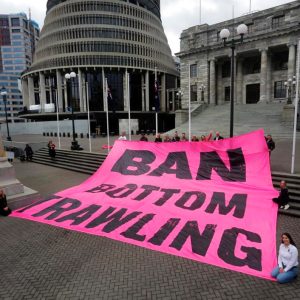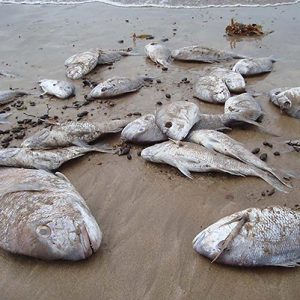Achilles disaster, preference for public fishing, your support for LegaSea
Achilles keeps on turning out to be a disaster
Good news! We put cameras on boats to see what industrial fishers get up to. Bad news! We found them doing bad things.
Good news! There’s proof positive in the footage so we can prosecute. Bad news! We decided not to prosecute because That Would Sour Our Relationship. Yeah.
And now it turns out not only did the Ministry for Primary Industries (MPI) not prosecute, the fish dumping skippers didn’t even get slapped with a wet bus ticket.
Of the five skippers in the firing line (four for mass illegal dumping of fish) latest news suggests none were prosecuted or even taken to task. Instead, it seems MPI staff pushed for “middle-ground” sanctions that included both restricting the boat’s allowable take the following year and submitting a plan for how the boats would avoid dumping in future.
That doesn’t seem too onerous, now does it? Kind of like having to write apology letters to all the people you’ve let down on a school trip.

Staff also pushed for observers or cameras to be placed on the boats the following year because clearly they needed to be seen to be doing the right thing.
If the skippers didn’t agree, they should be prosecuted.
Instead, MPI management said no to all of that.
Radio New Zealand asked MPI what actions were taken and it’s discovered MPI has had no correspondence with the five skippers following the activity caught on camera.
MPI called a meeting in 2014 to lay down the law and invited these five skippers: it doesn’t know if they attended the meeting or not.
MPI, you cannot be serious. These are not the actions of a regulatory agency charged with overseeing an industry. These are the actions of a ministry captured by industry, unwilling to do even the bare minimum needed to ensure the future of our fisheries.
RNZ – Operation Achilles – new information on lack of sanctions
Inquiry – Operation Achilles
It’s the principle of the thing
When the Quota Management System (QMS) was introduced in 1986 it was done so with the best of intentions. Until then, industrial fishing was running wild. There were few rules and no cohesive plan to deal with rampant overfishing and an industry hell bent on plundering the seas.
The idea was that the QMS would shape the industry, limit the catch where species were threatened, and introduce some much-needed oversight and management to the industry.
Recreational and customary fishing were not included in this because then, as now, both were seen as being very small parts of the overall fishing story. Recreational and customary fishing combined account for around 5-6% of the total fish take each year and so we were excluded because there was no problem there to solve.
To ensure the public could continue to fish and feed their families a draft national recreational policy was also developed in 1986.
By 1989 Minister Colin Moyle sought to finalise in the National Policy for Marine Recreational Fisheries, and just so everyone understood the situation he issued this statement:
“Government’s position is clear, where a species of fish is not sufficiently abundant to support both commercial and non-commercial fishing, preference will be given to non-commercial fishing”.
Moyle’s Promise never made it into law but it rests at the heart of the fisheries debate. We want to see this promise taken one step further – we want it built into the Fisheries Act as one of its initial guiding principles.
Each piece of legislation sets out a series of principles as to what the Act governs and why it is being introduced. The Fisheries Act sets out two principles: an Environmental Principle and an Information Principle.
Environment is easy enough – we should care for the environment in our use of it, says the Principle.
The Information Principle says decisions should be based “on the best available information” and we should be cautious “when information is uncertain, unreliable or inadequate” which is something MPI might like to revisit from time to time.
LegaSea says we need to have a Principle that relates to allocation of the available fish so Kiwi families can sustain themselves now and in the future. Moyle’s Promise ought to be used as the basis for that Principle.
LegaSea – Giving preference to our fishing
Colin Moyle – Moyle’s Promise
Support LegaSea
I’ve said it before but we need your help. LegaSea relies on donations and support from people like you to get the message through to those in power.
The good news is you can sign up to receive information, join up to become a Legend from as little as $10 a month, or you can fill your whanau’s Christmas stockings with LegaSea gear from our online shop.
Every little bit counts.
Subscribe to LegaSea – Sign up
LegaSea pre-Xmas specials – Shop at LegaSea
LegaSea – Legends
LegaSea – Partners





